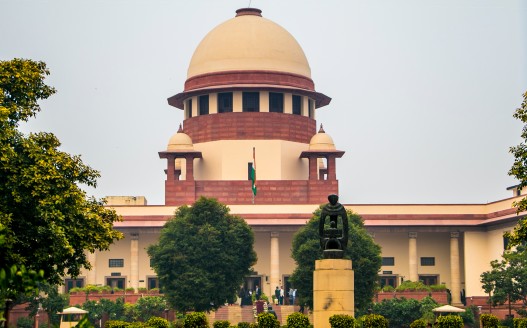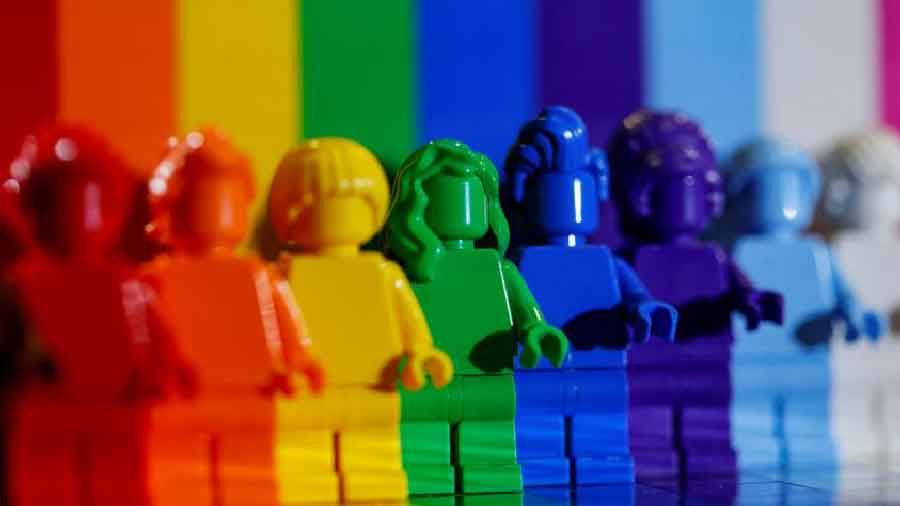The Supreme Court on Friday clubbed and transferred to itself all petitions pending before different high courts seeking legal validation for same-sex marriages.
A bench of Chief Justice DY Chandrachud and Justices PS Narasimha and JB Pardiwala asked the Centre to file a joint reply to the petitions by February 15 and directed their listing on March 13.
The bench said any petitioner, if not available to argue physically before the court or unable to engage a counsel or to travel to Delhi, can avail the facility of a virtual platform to join the hearing.
The top court asked the registry to provide links for virtual hearing to all parties who wish to address the court virtually.
It asked advocate Kanu Agarwal, appearing for the Centre, and advocate Arundhati Katju, representing the petitioners, to file a written note on the issue, cases laws and precedents to be relied upon by the parties, if any, and share it among themselves and with the court.
The bench asked advocate Kanu Agarwal to ensure that no petitioner is left out and the details of all petitions are incorporated in the compilations to be made.
During the arguments, Solicitor General Tushar Mehta told the bench since a petition is ripe for hearing before the Delhi High Court, the top court could either await its verdict or transfer all the petitions to itself.
The counsel for multiple petitioners told the bench they want the apex court to transfer all the cases to itself for an authoritative pronouncement on the issue and that the Centre can file its response to the top court.
The counsel said other than the main petition, several petitions are listed seeking transfer of cases pending in different high courts including the Delhi High Court, Gujarat High Court and Kerala High Court.
On January 3, the Supreme Court had said it will hear on January 6 the pleas seeking transfer of petitions for recognition of same-sex marriages pending before high courts to the apex court.
On December 14 last year, the top court had sought a response from the Centre to two pleas seeking transfer to the apex court of the petitions pending in the Delhi High Court for directions to recognise same-sex marriages.
Prior to that, on November 25 last year, the apex court had sought the response of the central government to separate pleas by two gay couples seeking enforcement of their right to marry and a direction to the authorities to register their marriage under the Special Marriage Act.
A bench headed by CJI Chandrachud, who was also part of the Constitution bench which in 2018 decriminalised consensual gay sex, had in November last year issued notice to the Centre besides seeking the assistance of Attorney General for India R Venkataramani in dealing with the pleas.
The top court's five-judge Constitution bench, in a path-breaking unanimous judgement delivered on September 6, 2018, held consensual sex among adult homosexuals or heterosexuals in private space is not a crime while striking down a part of the British-era penal law which criminalised it on the ground that it violated the constitutional right to equality and dignity.
The petitions on which the top court had issued notice in November last year have sought a direction that the right to marry a person of one’s choice be extended to the LGBTQ (lesbian, gay, bisexual, transgender and queer) people as part of their fundamental right.
One of the petitions sought interpretation of the Special Marriage Act, 1954 in a gender-neutral manner where a person is not discriminated against due to their sexual orientation.
The apex court in its 2018 judgement held that Section 377 of the Indian Penal Code that criminalised consensual gay sex was "irrational, indefensible and manifestly arbitrary".
It had said the 158-year old law has become an "odious weapon" to harass the LGBT community by subjecting them to discrimination and unequal treatment.












